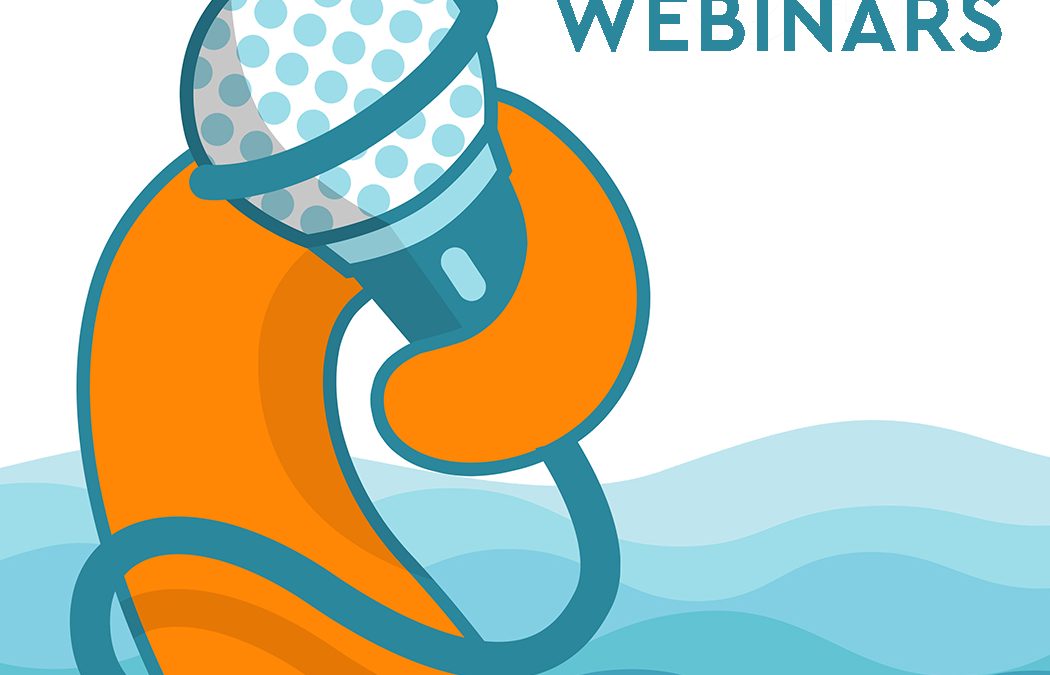
by Sarah Carr, Ph.D. | Jan 9, 2024 | Past Webinars, Webinars
This webinar originally aired on Wednesday, January 10, 2024. Presented by: Louise Comfort of the University of Pittsburgh and Lee Freitag of Woods Hole Oceanographic Institution. Description: Tsunamis are infrequent but terrifying hazards for coastal communities. Difficult to predict, they materialize with little warning, claiming thousands of lives and causing billions of dollars in damage. Developing countries cannot afford costly underwater cable systems, and governments and relief organizations have been forced to rely on flawed warning systems such as deep-sea buoys. Now, a groundbreaking new approach to tsunami detection and warning, which relies on low-cost underwater sensors and networks of smartphone communication, has changed the equation. Developed by an international, interdisciplinary team of researchers, this approach allows at-risk coastal communities to have an economically viable, scientifically sound means to protect themselves. Learn about the science behind this new approach in this webinar with Louise Comfort and Lee Freitag. Discover how this new sociotechnical approach could alert residents to impending tsunami threats in near-real time and how the approach could apply to all coastal cities at risk of tsunamis, sea-level rise, storm surges, and other hazards.

by Sarah Carr, Ph.D. | Dec 12, 2023 | Past Webinars, Webinars
This webinar originally aired on Tuesday, December 12, 2023. Presented by: Giulia Costa-Domingo and Rowana Walton of the UN Environment Programme World Conservation Monitoring Centre. Description: At least EUR3.35 billion, across 237 projects, has been invested in seascape restoration since 2015. The recent report Endangered Seascapes: Progress, needs and opportunities for seascape restoration by the UN Environment Programme World Conservation Monitoring Centre (UNEP-WCMC) reveals the locations, primary sources of funding, and beneficiaries of large-scale marine and coastal restoration efforts taking place around the world. It focuses on large, “seascape”-scale projects, recognising the importance of integrated approaches to the use and conservation of coastal and marine socio-ecological systems. The report synthesises the findings from a project, commissioned by Arcadia, which reviewed a non-comprehensive list of seascape restoration projects to provide a high-level overview of the state of seascape restoration that can support evidence-based restoration funding and planning. This webinar will cover the major findings from the project’s report and accompanying database which are both available online for free and contain a high-level analysis of marine restoration work undertaken from 2015-2022.

by Sarah Carr, Ph.D. | Nov 6, 2023 | Past Webinars, Webinars
This webinar originally aired on Tuesday, November 28, 2023. Presented by: Johnny Briggs and Felipe Paredes of the IUCN OECM Specialist Group. Description: Many sites – termed other effective area-based conservation measures (OECMs) – make a vital contribution to the conservation of biodiversity, even though they are not protected areas. In 2022, OECMs were included among the ways that parties could fulfill their commitment to conserve 30% of the Earth under the Kunming-Montreal Global Biodiversity Framework. To assist government officials, land managers, and conservationists, IUCN WCPA recently published a step-by-step site level tool for identifying OECMs. This tool allows an assessor to determine if a site meets the Convention on Biological Diversity definition and criteria of an OECM. For sites which do not currently meet all the criteria, the tool serves to highlight areas where further information or improvements in governance and management are required.

by Sarah Carr, Ph.D. | Oct 10, 2023 | Past Webinars, Webinars
This webinar originally aired on Wednesday, October 25, 2023. Presented by: Christine Ward-Paige of eOceans. Description: Marine protected areas, and all ocean management areas, urgently need to work. Measuring, tracking, and communicating performance in real-time is necessary to iterate towards success. A participatory framework — integrating technology, cloud-computing, and big data processing with purpose-built maps, analytics, and algorithms, and an ethical approach to data sharing — can help. The eOceans app and analytics platform were specifically designed to host the MPA Health Tracker and MPA Health Score. These tools provide both in-depth and high-level assessments of MPAs across social, biological, and anthropogenic dimensions, accessible to all stakeholders, rightsholders, and decision makers. The system was created to break down silos and enable collaborative MPA performance tracking to facilitate smart actions in a timely and united way.

by Sarah Carr, Ph.D. | Oct 2, 2023 | Past Webinars, Webinars
This webinar originally aired on Thursday, September 21, 2023. Presented by: Jon Hare of the NOAA Northeast Fisheries Science Center. Description: The pace, scale, and magnitude of offshore wind development in the US and around the globe is increasing rapidly. Countries are committing to this new ocean use to decarbonize their energy systems and as a goal for economic growth. The scale of this development has moved from small turbines in shallow waters of the North Sea to new technologies that allow for large-scale industrialization in marine ecosystems. This webinar will explore the potential interactions of this growing industry with the structure and function of marine ecosystems and what science is still needed to better understand these interactions.

by Sarah Carr, Ph.D. | Aug 7, 2023 | Past Webinars, Webinars
This webinar originally aired on Thursday, September 14, 2023. Presented by: Jean-Jacques Goussard of the Ocean Governance Project, Mike De Luca of the Jacques Cousteau National Estuarine Research Reserve, Mathieu Ducrocq of the Regional Network of Marine Protected Areas in West Africa (RAMPAO), Lilian Wetzel of the Ocean Governance Resilience Partnership, and MPA managers from Senegal, Colombia, Brazil, and the US. Description: The Ocean Governance Resilience Partnership has developed the Resilience Self-assessment Tool ( R-SAT) for addressing the resilience of MPAs. Over 80 MPAs in 17 countries have conducted resilience self-assessments with the tool, and since December 2022, several trainings of trainers have been organized, including in Senegal, Brazil, Colombia, Comoros, and the US. This webinar will present lessons learned from applying the tool and feedback from the recent training of trainers, including how future-oriented management approaches and risk reduction are being integrated into the tool. In addition, several MPA managers will share their experiences applying the tool. Learn more about R-SAT at https://tinyurl.com/MPAresilience.

